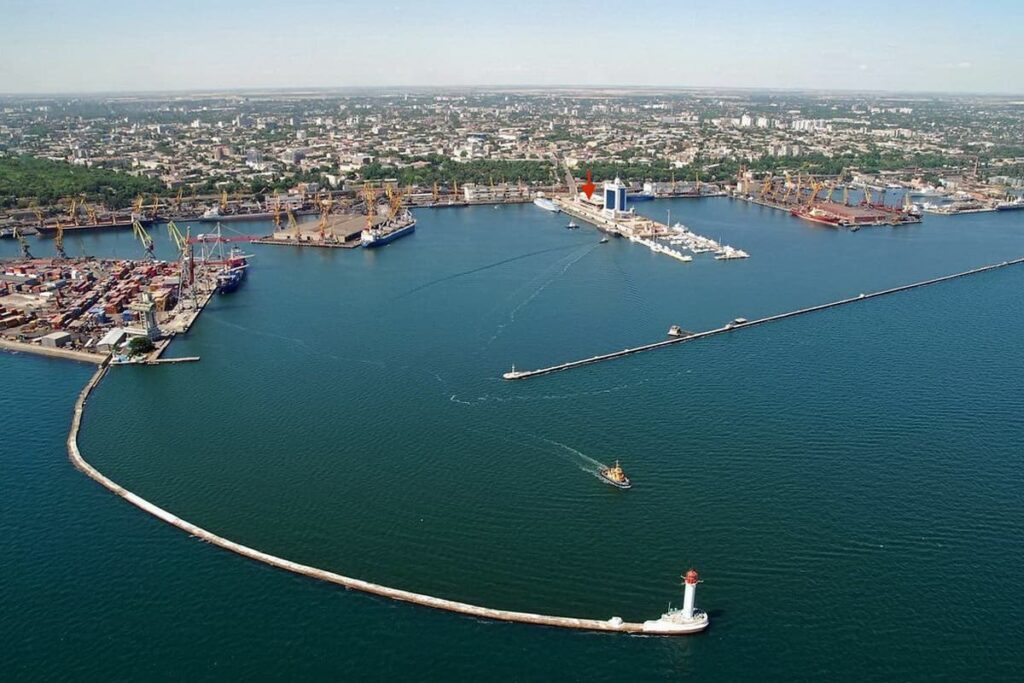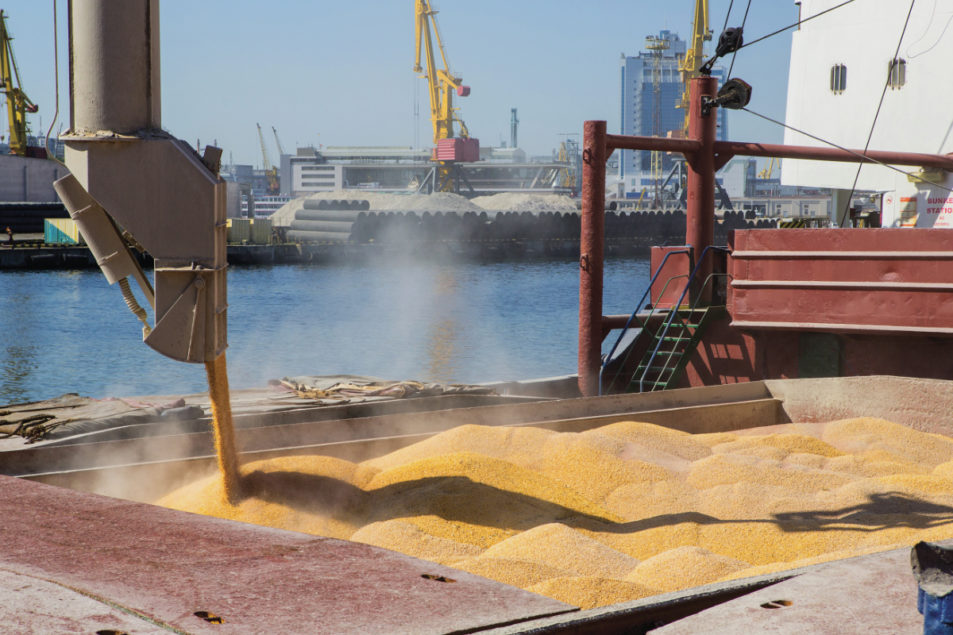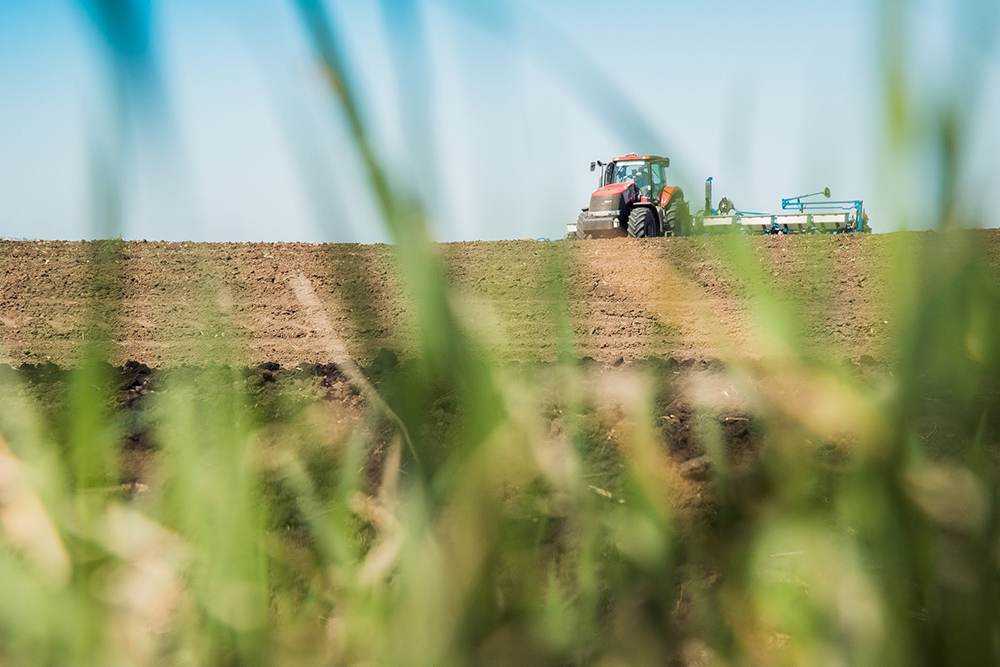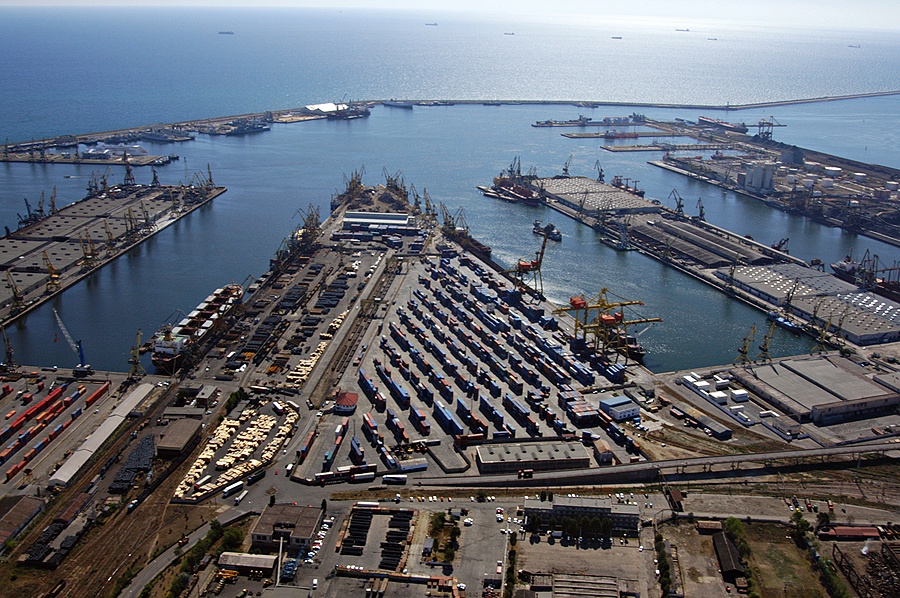Unblocking Ukrainian ports – preventing the food security challenges for the world

Ukrainian sea ports have been blocked by Russian navy forces since February 24th, 2022. The rapid closure of seaports caused major logistics disruption not only in Ukraine but in the whole Black Sea region and Eastern Europe.
Similar to the worldwide logistics disruption caused by Covid-19, the blockade of Ukrainian seaports has caused the ripple effect but at a different scale. Serious threats to the world food security associated with the war in Ukraine are evident today. The transport and cargo analytical bureau Informall BG based in Ukraine tried to figure out what consequences for the rest of the world may be caused by restrictions on agricultural exports associated with the blockade of ports by the Russian military, through which up to 90% percent of Ukrainian agro-industrial exports were shipped.
The United Nations is concerned with the blockade of Ukrainian sea ports. Executive Director of WFP (World Food Program) David Beasley shared his opinion on May 6th, 2022 saying: “Right now, Ukraine’s grain silos are full. At the same time, 44 million people around the world are marching towards starvation. We have to open up these ports so that food can move in and out of Ukraine. The world demands it because hundreds of millions of people globally depend on these supplies” He also added “We’re running out of time and the cost of inaction will be higher than anyone can imagine. I urge all parties involved to allow this food to get out of Ukraine to where it’s desperately needed so we can avert the looming threat of famine”.

Traders on the global food market panicked due to the Russian-Ukrainian war causing food prices to soar in most regions, however, Informall BG considers the shortage of basic grains such as wheat and meslin is also a political issue along with real situation. While blocked Ukrainian ports are a real problem for the country, the shortage of wheat on the global market can be compensated by other major wheat producers like the US, Canada, India, Australia, etc. but the question is whether poor countries in the Middle East and Africa can afford it. Vassiliy Vesselovski CEO of Informall BG says: “the world has enough wheat in-store in order to collectively mitigate (or minimize) the effects of the war on the most vulnerable countries – the matter is cost and thus de-blocking of Ukrainian ports is vital and crucial for the world to keep the countries dependent on Ukrainian food supply within affordable balance between the volumes and price.”
Informall BG names a few reasons why Russian Federation is targeting Ukrainian Black Sea ports. Firstly, Russians aim to heavily damage the Ukrainian economy by preventing the export of Ukrainian agricultural products in the middle of the high season. Considering that sales of agricultural products on international markets account for 40% of total Ukrainian export revenues the blockade of seaports seriously harms Ukrainian economy. Prior to the war with the Russian Federation, the Ukrainian agro-industry exported up to 5 million tons of agricultural products per month through the seaports of Ukraine, including corn, wheat, barley, sunflower seeds, vegetable oil, etc. But as a result of their blockade by Russian warships, exports fell 10 times in March-April, 2022. According to the Ministry of Economy of Ukraine, this leads to a monthly shortfall of $ 1.5 billion in Ukraine’s export earnings. Moreover, undersupplied wheat will create a food crisis in the Least Developed Countries (and Low-Income Food-Deficit Countries) of Africa and the Middle East which depend on Ukrainian crops the most. Russia could also use the blockade as leverage in the foreseeable negotiation process with Ukraine. Finally, shutting down Ukrainian ports cuts off the import of various products and essential supplies such as coal, fuel, fertilizers etc. intensifying the humanitarian crisis in Ukraine.

As Russia is seeking a total logistical blockade of Ukraine the international food supply shortage is inevitable. According to the United Nations research, Ukraine was the world’s sixth-largest exporter of wheat in 2021 with a 10% share of the market, shipping 20 million tons of wheat and meslin (a mixture of wheat and rye), and the country is also one of the world’s top exporters of barley and sunflower seeds, corn and vegetable oil. About 16% of world exports of corn (24 million tons) and about 55% of world trade of sunflower oil (5.1 million tons) were produced by Ukrainian farmers in 2021. Depending on the type of grain and destination, the rapid disruption of Ukraine’s grain exports will increase international food prices up to 25% from the current levels, which were already sharply elevated due to the Covid-19 crisis. It’s apparent that due to the active hostilities, the destruction (in some cases stealing) of agricultural equipment and fuel reserves, and blocked seaports it will be impossible for Ukrainian exporters to supply another 20 million metric tons of wheat and meslin this year on the international market. According to the Informall BG monitoring, Ukraine supplied over 500,000 metric tons of milling wheat via its Black Sea ports in the markets of Somalia, Ethiopia, Djibouti, and Yemen under the UN World Food Program in 2021. According to the Ministry of Agrarian Policy and Food of Ukraine, the possibility of purchasing surplus grain in Ukraine through the UN World Food Program was discussed with the Executive Director of the UN WFP David Beasley to feed African and Middle Eastern countries and prevent global hunger in these regions.
In 2022 at least 30% of the sown area in Ukraine was not sown due to the war, and only because of this, the expectations of crop volumes for this year are significantly lower. Even if at the time of the harvest season in 2022, the seaports resume their work, the volume of Ukrainian grain available for export will be predictably less. Informall BG studied the opinions of major agri-industry stakeholders finding out that Ukraine is likely to face a reduction in the grain harvest in 2022 to approximately 56 million tons, which will be the lowest in the last 10 years and will mean a decrease of 34% to a record figure in 2021.

While Ukrainian Black Sea ports are blocked, Ukraine is left with only a few export routes, however, Russia is keep targeting them too. Railway service towards the EU countries, mainly Romania and Poland, is currently the only option for the Ukrainian agricultural industry seeking to deliver considerable volumes of grains via their ports.
The Russian army is targeting the railway network and its electricity power stations in Ukraine primarily to disrupt military logistics which naturally heavily affects railway capacity for grain exports. Earlier, Informall BG highlighted a new intermodal route connecting Ukrainian Black Sea ports with Constanta in Romania mutually developed by regional transport stakeholders. However, now this railway connection has been suspended due to another Russian missile attack on the bridge vital for the route connecting the Black seaports of Odessa and Pivdennyi with the port of Izmail on the Danube River
In April 2022, Ukraine exported around 80,000 tons of corn via the neighbouring port of Constanta utilizing railway and river barges departing from the port of Izmail with another 80,000 tons approved and en route. At a first glance, Constanta could be a lifeline for the Ukrainian agri-industry, however, Informall BG believes, that in about two months the logistics of Ukrainian agricultural products through Romania may become more complicated due to the seasonal shipments of the harvest of Romanian, winter wheat and barley, which are traditionally transshipped through the port infrastructure of Constanta.
Additionally, the Russian army is regularly destroying fuel storage facilities and oil refinery plants escalating the problem of fuel for the logistics and agri- industries in Ukraine. While Ukrainian trucking companies are struggling to find diesel fuel at gas stations, farmers are short on fuel for farm equipment and vehicles. Our estimation shows, that as demand for fuel rises in Ukraine, the cost of diesel and gas has spiked by at least 35%.

The situation with fuel is worsening due to logistics issues too as fuel is being imported from the EU via complex overland routes to Ukraine. Historically, Russia and Belarus used to be major fuel suppliers for Ukraine effectively delivering fuels via a common railway system. However, since the Russian invasion of Ukraine on Feb 24th, importers had to look for alternatives in the EU market which does not feature similar railway track width causing major delays at the borders.
Informall BG says: The Ukrainian railway system was built with an ex-USSR type of gauge of 1.520mm, while most of the Europe tracks utilize an inner gauge of the rails at 1.435mm. The three Baltic countries – Latvia, Lithuania and Estonia, – also have a Russian gauge of 1.520mm and it could be well utilized to set up a railway connection between Ukraine and the Baltic Seaports. However, the Baltic railway system is isolated now as the rail routes to these ports lay through Belarus, which is currently sanctioned and a Russian ally in the war against Ukraine. Not only Belarus’s actions towards Ukraine prevent Ukrainian exporters from taking this route but also the fact that the majority of the rail connections between Ukraine and Belarus have been destroyed for military and security reasons. The only way to move cargoes by rail from Ukraine to the ports of the EU is via five gauge-swap stations located alongside the Ukrainian borders with Poland, Hungary and Slovakia. Currently, Ukrainian Railways (Ukrzaliznytsya) operate around 1,700 European type gauge carts utilized at gauge-swap stations for Ukrainian railway wagons/platforms heading towards the EU seaports. This is fairly limited capacity considering that as of May 4th, 2022 more than 30,000 rail wagons lined up at the western border crossings towards the EU. The waiting time ranges from 14 to 35 days before a rail wagon crosses the border. Importantly, the average cost of the transport component of rail and/or road transport of grain before loading on the vessel adds up to 40% to the price of exported agricultural products, depending on the specific crop and route. In April 2022 Ukraine exported only 831,552 metric tons of wheat, cereals and oilseeds, as well as products of their processing via railway to the ports of the EU and another 114,885 metric tons have been transported by trucks. Also, 316,767 tons were exported by sea, via river ports of the Izmail region on Danube River with further transshipments to the port of Constanta, Romania. Considering the Ukrainian agro-industry used to export around 5 million tons per month in 2021, April’s results in 2022 are only a quarter of the 2021 monthly output volume.

Even the cumulative capacity of railway, truck and river modes of transport is not enough to meet Ukrainian export needs which account for 20 million tons of wheat only. Although, the Ukrainian railway system is not capable to carry the needed volume of cargo each month the EU transport infrastructure is also would not be able to handle extra millions of tons on top of the existing EU volume.
Today, in 2022, as the Russian-Ukrainian full-scale war continues, Ukraine introduced a full embargo on trade with Russia, while the EU, the UK and Canada (recently joined the initiative) have cancelled all duties and quotas on Ukrainian export products for a year in order to support and stimulate the Ukrainian economy in a state of war. However, the blockade of the Ukrainian seaport is still the main problem when dealing with export shipments.
Informall BG says: Open EU and the UK markets and trade preferences for Ukrainian exporters are not able to compensate for the losses caused by the blockade of seaports. Not only the EU and UK markets are very competitive for Ukrainian products but it also has limited capacity in both consumption and population. Moreover, transportation to this market is very challenging for Ukrainian exporters who mainly produce agricultural and ferrous products in bulk. Main export markets for Ukrainian crops in the Middle East, Africa and Asia are out of reach for exporters if ports remain closed.
Alexander Khromov project manager of Informall BG says: “the unblocking of Ukrainian seaports is vital not only for Ukraine which is obvious but for other countries around the world. Of course, Ukraine has its own reserves of crops and for the time being the food crisis is not expected in the country, but habitual life of countries dependent on crops imported from Ukraine may face dramatic changes.”
According to the WTO some countries of Africa are facing the possibility of price hikes of up to 50-85 percent for wheat as a result of the war’s impact on grain shipments from the Black Sea region. Africa and the Middle East are the most vulnerable regions, as they import over 50 percent of their cereal needs from Ukraine and/or Russia. In total, 35 countries in Africa import food and 22 import fertilizers from Ukraine, Russia or both.

According to Informall BG findings, the largest importers of Ukrainian wheat in 2021 were Turkey, Egypt, Indonesia, Iran, Pakistan, Saudi Arabia, Bangladesh, Yemen, Lebanon and Nigeria Now these countries will be forced to spend more money and focus on wheat supplies from other countries. Since the beginning of the Russian-Ukrainian war and the blockade of Ukrainian Black Sea ports, the offer on the wheat market has fallen meaning the price will be significantly higher this year. Moreover, countries relying on the import of wheat will want to form greater reserves for such cases which will also heat up the market in 2022/23.
Daniil Melnychenko data analyst of Informall BG says: “The rising price of wheat could be used as a tool by those who will be interested in political unrest, uprisings, and riots in the most sensitive to the food prices regions. The shortage of food may even cause another mass migration from the African continent and/or the Middle East. If the world wants to prevent a food crisis in Africa and the Middle East, top wheat exporters should tap into their wheat reserves to cool down the market, putting slack into the global supply. No doubt, it will take time and effort for recipient countries to rearrange their supply chains and place orders with new sources outside of the Black Sea region.”
CEO of Informall BG Vassiliy Vesselovski says: “We see a need to develop new international mechanisms in order to prevent a situation similar to the Ukrainian Black Sea crisis when a permanent member of the UN organization is blocking all seaports of another country, provoking a global food crisis. First of all, such instruments would allow us to avoid critical growth in transport and logistics costs and insurance premiums that will inevitably affect the formation of food prices. The already elevated costs of maritime transportation further compound the effects on the final costs of internationally sourced food for importers. Although, the Russian war on Ukraine has already caused a ripple effect on the total wheat production, holding the higher prices for wheat for a year, unblocking of Ukrainian seaports is a crucial step in order to stabilize the world food market prices at least at the existing level.”
INFORMALL BG, based in Odessa, Ukraine is an independent consulting and private equity firm, established in 2005 by a team of executives with extensive experience in the transportation industry and corporate management. Informall BG renders a full range of consulting and cargo analytical services required for decision-making, planning and implementation of transport infrastructure projects over Ukraine.





